As reported in last week’s Irish Farmers Journal, the ICBF has announced that it plans to reduce and put a cap on the proportion of pure genomic data that will contribute to an animal’s EBI. For some background, the EBI of a typical Irish-born AI bull is made up of a blend of the genomic proof and his parental average.
The genomic element is based on a DNA sample, which when analysed will help to identify future performance for each trait in EBI based on certain markers in his DNA.
Parental average is the traditional way of formulating EBI and is simply the average EBI of the bull’s parents. In recent years, both the genomic and parental average figures were blended together to get the EBI with greater weighting on genomics.
Both the genomic element and the parent average element of the bull’s EBI will reduce as daughter information becomes available. The first strand of daughter information to become available for a bull is his calving difficulty as this becomes apparent nine months after insemination.
A reliable daughter proof for the other traits is much slower to emerge as daughters need to be milking to know their milk production and they need to calve for at least a second time to know their calving interval.
Survival is based on the likelihood of daughters surviving from one lactation to the next. Therefore, it takes at least eight years to get a reliable daughter proof for fertility.
Genomics
Genomics was first used in 2009 and it has revolutionised the breeding programme in Ireland.
Genomics has reduced the generational interval in the national herd. In 2008, there was an average of a 10-year age gap between a calf and his or her sire. This gap has now halved to a difference of just five years.
A shorter generational interval should lead to faster genetic gain.
However, the reduction in generational interval can now be seen as a double-edged sword.
On the one hand, it has increased genetic gain while on the other hand it has greatly reduced the proportion of parental average and, ultimately, daughter proof in a young bull’s ancestry.
The difficulty here is that the average age gap between a calf and his or her sire is five years, yet it takes eight to 10 years to get a reliable fertility proof (calving interval between first and second lactation will typically be known five years after insemination). Thus, the contribution of pure genomic data to the fertility sub-index in the ancestry of the youngest AI bulls has been growing every year without any limit.
The impact on most herds will be small, with EBI likely to move downwards by single digits
The announcement by the ICBF that it is going to cap the genomic element of the fertility sub-index at a maximum of 50% has the result of dropping the fertility sub-index of these young bulls. This correction will take place in the October evaluation run with the average EBI of 2020-born Irish bull calves dropping by €78, while the average EBI of 2018-born bulls will drop by €22 with the majority of this movement taking place in the fertility sub-index.
The impact on most herds will be small, with EBI likely to move downwards by single digits. However, we don’t yet know what impact it’s going to have on individual bulls.
This is not the first time there have been issues with genomics and the fertility sub-index. Between €30 and €40 was wiped off the average EBI of bulls on the active bull list in 2017, when daughter information on 2011-born bulls became available.
According to ICBF, the ranking of bulls after the October correction will not change and the correlation between the new EBI figures and the old EBI figures for 2018-born bulls is 0.94, which is considered to be a strong correlation. In other words, the top bulls will still be the top bulls even after the change. As mentioned, the average change for 2018-born bulls is €22, with the range being from -€74 to +€50 of a change for individual bulls. What is annoying some farmers is that the messaging around genomics, from both the ICBF and Teagasc has been to use a team of bulls to manage the risk of some bulls’ EBI dropping. The facts around genomic bias and the fact that genomics was known to have been overestimating EBI has not been publicly discussed, which then makes announcements like the cap on genomics more of a surprise for farmers.
We now have multiple generations of bulls with no progeny data for fertility and when you accumulate small errors multiple times it all adds up
Teagasc geneticist Donagh Berry says that the issues with genomics are not just an Irish problem, but occur in every country that is using genomics. “We’ve always known about genomic bias but only now can we put a figure on it. We are following the US approach, the world leader in genomics, which is to cap genomics at a trait level. Essentially, the problem is the industry [farmers] is moving faster than the science can keep up.
“We now have multiple generations of bulls with no progeny data for fertility and when you accumulate small errors multiple times it all adds up and then you have to correct for that, which is what is happening now. It’s egg on the faces of everyone, both in Ireland and in other countries,” Donagh Berry says.
We know EBI is working but the challenge for the industry now is to rebuild farmer confidence in genomics. Farmers will be seeking reassurance that real genetic progress is being made in the fertility sub-index. This can only be observed by stripping out the genomic element in the proofs for both AI sires and dairy females and seeing the trends over time. The ICBF is working on putting this information together, but the trends for female fertility are not likely to be available until after a full evaluation run which is scheduled for 6 October.
Economic breeding index (EBI): a multi-trait profit-based breeding index specific to Ireland. Genomics: a prediction of future performance based on that animal’s DNA.Proof: the genetic evaluation or EBI.Parent average: the average EBI of both parents.Daughter proof: the EBI when production and fertility data of that bull’s daughters is known.ICBF: Irish Cattle Breeding Federation. The ICBF is governed by a board consisting of four members from the IFA, two from the ICMSA, five from Munster/Progressive/NCBC, two from IHFA and one each from DAFM and pedigree cattle breeders. Read more
EBIs to drop as ICBF confirms over-prediction
ICBF admit genomic inaccuracies for dairy stock
As reported in last week’s Irish Farmers Journal, the ICBF has announced that it plans to reduce and put a cap on the proportion of pure genomic data that will contribute to an animal’s EBI. For some background, the EBI of a typical Irish-born AI bull is made up of a blend of the genomic proof and his parental average.
The genomic element is based on a DNA sample, which when analysed will help to identify future performance for each trait in EBI based on certain markers in his DNA.
Parental average is the traditional way of formulating EBI and is simply the average EBI of the bull’s parents. In recent years, both the genomic and parental average figures were blended together to get the EBI with greater weighting on genomics.
Both the genomic element and the parent average element of the bull’s EBI will reduce as daughter information becomes available. The first strand of daughter information to become available for a bull is his calving difficulty as this becomes apparent nine months after insemination.
A reliable daughter proof for the other traits is much slower to emerge as daughters need to be milking to know their milk production and they need to calve for at least a second time to know their calving interval.
Survival is based on the likelihood of daughters surviving from one lactation to the next. Therefore, it takes at least eight years to get a reliable daughter proof for fertility.
Genomics
Genomics was first used in 2009 and it has revolutionised the breeding programme in Ireland.
Genomics has reduced the generational interval in the national herd. In 2008, there was an average of a 10-year age gap between a calf and his or her sire. This gap has now halved to a difference of just five years.
A shorter generational interval should lead to faster genetic gain.
However, the reduction in generational interval can now be seen as a double-edged sword.
On the one hand, it has increased genetic gain while on the other hand it has greatly reduced the proportion of parental average and, ultimately, daughter proof in a young bull’s ancestry.
The difficulty here is that the average age gap between a calf and his or her sire is five years, yet it takes eight to 10 years to get a reliable fertility proof (calving interval between first and second lactation will typically be known five years after insemination). Thus, the contribution of pure genomic data to the fertility sub-index in the ancestry of the youngest AI bulls has been growing every year without any limit.
The impact on most herds will be small, with EBI likely to move downwards by single digits
The announcement by the ICBF that it is going to cap the genomic element of the fertility sub-index at a maximum of 50% has the result of dropping the fertility sub-index of these young bulls. This correction will take place in the October evaluation run with the average EBI of 2020-born Irish bull calves dropping by €78, while the average EBI of 2018-born bulls will drop by €22 with the majority of this movement taking place in the fertility sub-index.
The impact on most herds will be small, with EBI likely to move downwards by single digits. However, we don’t yet know what impact it’s going to have on individual bulls.
This is not the first time there have been issues with genomics and the fertility sub-index. Between €30 and €40 was wiped off the average EBI of bulls on the active bull list in 2017, when daughter information on 2011-born bulls became available.
According to ICBF, the ranking of bulls after the October correction will not change and the correlation between the new EBI figures and the old EBI figures for 2018-born bulls is 0.94, which is considered to be a strong correlation. In other words, the top bulls will still be the top bulls even after the change. As mentioned, the average change for 2018-born bulls is €22, with the range being from -€74 to +€50 of a change for individual bulls. What is annoying some farmers is that the messaging around genomics, from both the ICBF and Teagasc has been to use a team of bulls to manage the risk of some bulls’ EBI dropping. The facts around genomic bias and the fact that genomics was known to have been overestimating EBI has not been publicly discussed, which then makes announcements like the cap on genomics more of a surprise for farmers.
We now have multiple generations of bulls with no progeny data for fertility and when you accumulate small errors multiple times it all adds up
Teagasc geneticist Donagh Berry says that the issues with genomics are not just an Irish problem, but occur in every country that is using genomics. “We’ve always known about genomic bias but only now can we put a figure on it. We are following the US approach, the world leader in genomics, which is to cap genomics at a trait level. Essentially, the problem is the industry [farmers] is moving faster than the science can keep up.
“We now have multiple generations of bulls with no progeny data for fertility and when you accumulate small errors multiple times it all adds up and then you have to correct for that, which is what is happening now. It’s egg on the faces of everyone, both in Ireland and in other countries,” Donagh Berry says.
We know EBI is working but the challenge for the industry now is to rebuild farmer confidence in genomics. Farmers will be seeking reassurance that real genetic progress is being made in the fertility sub-index. This can only be observed by stripping out the genomic element in the proofs for both AI sires and dairy females and seeing the trends over time. The ICBF is working on putting this information together, but the trends for female fertility are not likely to be available until after a full evaluation run which is scheduled for 6 October.
Economic breeding index (EBI): a multi-trait profit-based breeding index specific to Ireland. Genomics: a prediction of future performance based on that animal’s DNA.Proof: the genetic evaluation or EBI.Parent average: the average EBI of both parents.Daughter proof: the EBI when production and fertility data of that bull’s daughters is known.ICBF: Irish Cattle Breeding Federation. The ICBF is governed by a board consisting of four members from the IFA, two from the ICMSA, five from Munster/Progressive/NCBC, two from IHFA and one each from DAFM and pedigree cattle breeders. Read more
EBIs to drop as ICBF confirms over-prediction
ICBF admit genomic inaccuracies for dairy stock




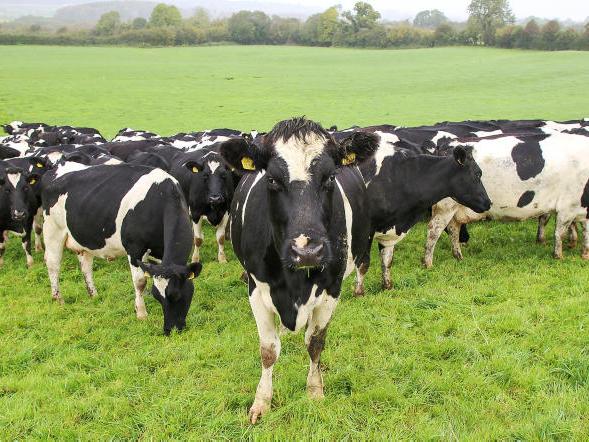
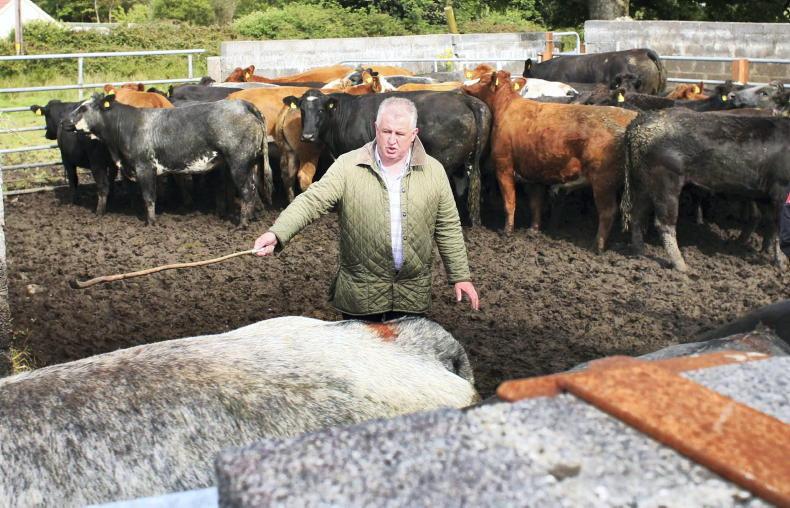

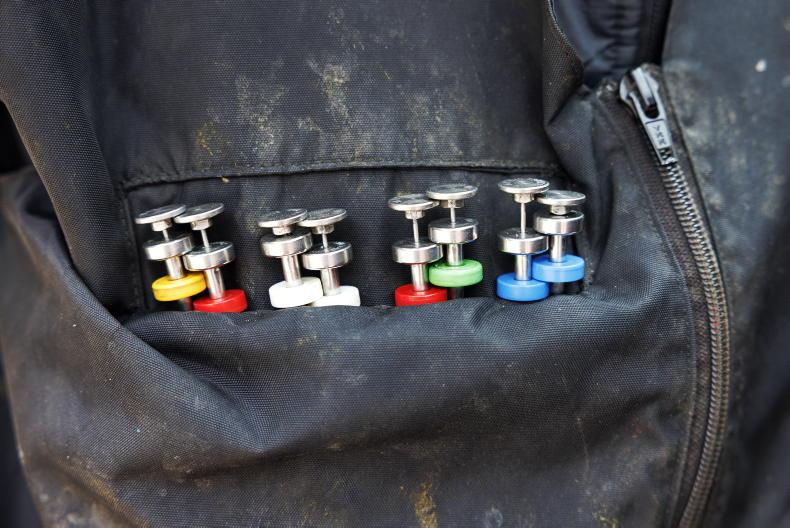
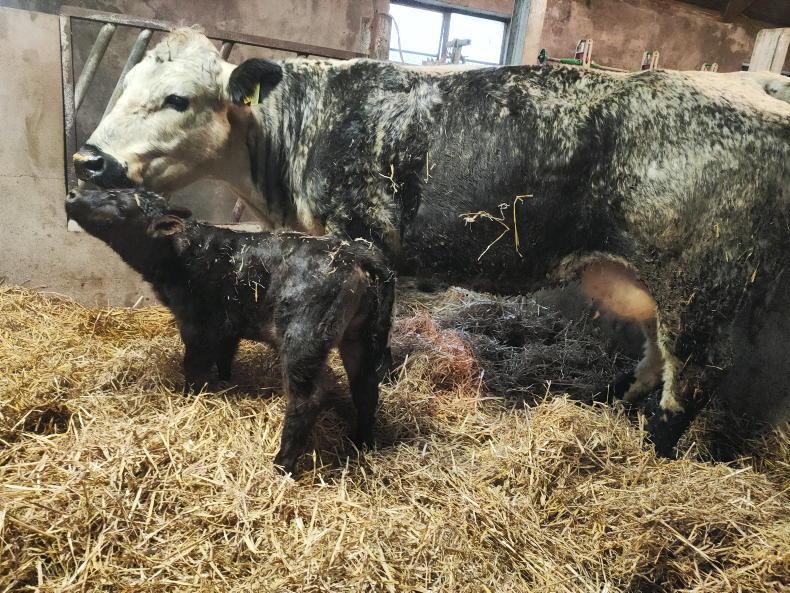
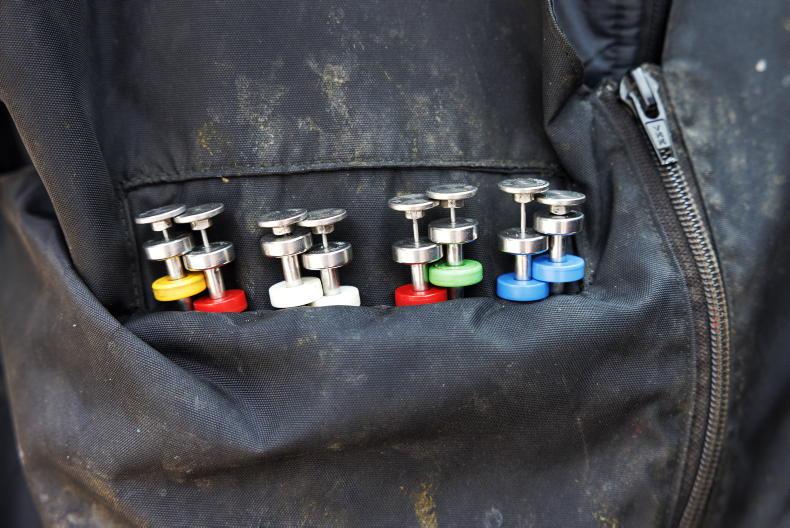
SHARING OPTIONS